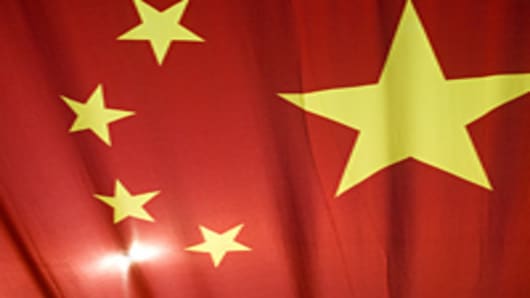Chanos points out that construction represents nearly 70 percent of China's economy. And with China on pace to build nearly 25 million new homes in 2011, the value of real estate to GDP is approaching levels witnessed during crisis situations in Japan in 1989 and Ireland in 2007. Consumers can't afford or keep up with the rampant oversupply, as speculation and corruption have overtaken the market.
You may have seen pictures of the so-called ghost cities in China. The following video from SBS Dateline provides an overview of some of the concerns in the market in a YouTube video.
I highly respect Chanos and, after reading that he was short McGraw-Hill (a Dividend Stars Portfolio holding), I took notice. His argument is that S&P (which affirmed its long-term rating on China's sovereign debt at AA-minus) is missing the boat. I tend to agree. Based on what I've read from Chanos and other experts, it seems that some sort of economic disruption, fueled by a collapse in the real-estate market, is almost inevitable.
In fact, the renminbi has slumped to the bottom of its official trading band for six straight days through Dec. 7 against the dollar.
I still like the prospects of McGraw-Hill but am looking to hedge the portfolio with some short China exposure. If they get the call on China completely wrong, the result could be an even worse blow to their already damaged reputation. The hedge will also help alleviate some other China-related concerns in the portfolio. While Norfolk Southern (another Dividend Stars holding) is still a high-conviction pick, I'm concerned with what might happen to its coal exports to China if construction in the region starts to tail off.
Today, I'm adding the ProShares FTSE China 25 Ultrashort ETF to the portfolio. While the Dividend Stars portfolio is meant to provide investors with a blue-chip dividend yielding portfolio, a hedge on China will help reduce overall risk. Unfortunately, this will cut the yield too. The FXP is supposed to mimic (200 percent) the inverse of the daily performance of the FTSE China 25 Index. I don't love inverse ETFs , but this seems to be the easiest way to get short exposure in a somewhat liquid instrument. (The ETF averages 640,000 shares a day.)
More on China from CNBC:
Rising Multinationals Placing Less Importance on China: Survey
Analysis: Chinese Stocks Have Forward Looking Quality
______________________________
CNBC Data Pages:
______________________________
Disclosures:
Atthe time of publication, the author was long FXP.
Disclaimer


